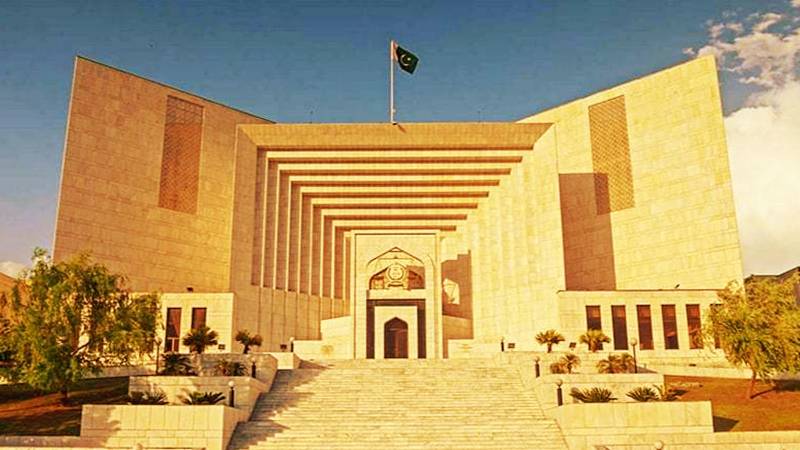
In a four-to-one ruling on Wednesday, the Supreme Court determined that any misconduct procedures against apex court judges ongoing before the Supreme Judicial Council (SJC) will not be suspended if the respondent judge resigns or retires.
After a lengthy hearing, Justice Amin-ud-Din Khan, who led the five-judge bench, issued the brief order, stating that it would be the SJC's prerogative to pursue the case to its natural conclusion after it had taken cognizance of the matter. The court allowed for a delay in submitting appeals.
On the other hand, Justice Syed Hasan Azhar Rizvi dissented from the main ruling on the basis of limitation and the merits of the intra-court appeals filed by both the federal government and Afiya Sheharbano Zia, arguing that the latter's challenge was time-barred by 187 days.
The bench also included Justice Jamal Khan Mandokhel, Justice Musarrat Hilali, and Justice Irfan Saadat Khan.
The appeals were filed to challenge the 2023 ruling in the Afiya Sheharbano Zia case on the grounds that the SJC has been effectively rendered useless by rendering Article 209 of the Constitution inapplicable to a judge who faced misconduct charges but retired or resigned.
The partial acceptance of the appeal would imply that the continuing procedures against Justice (retired) Sayyed Mazahar Ali Akbar Naqvi before the SJC will continue until the council makes a decision.
Recently, Chief Justice of Pakistan (CJP) Qazi Faez Isa said that he sought opinions on complaints against 100 apex court judges by referring them to SJC members.
However, former CJP Saqib Nisar, against whom Ms. Zia filed charges, is safe since the council took up the case after Justice Nisar's retirement and dismissed it as infructuous.
The SJC secretary informed the court that on October 12, 2018, the council received 15 complaints against ex-CJP Nisar, which were looked up by the council on February 14, 2019 and dismissed as infructuous since Justice Nisar retired on January 17, 2019.
In its appeal, the government said that the 2023 verdict rendered the council effectively obsolete by rendering Article 209 inapplicable to a judge who faced charges of wrongdoing but retired or resigned.
Authored by Justice Munib Akhtar, a two-judge bench led by now-retired Justice Ijaz-ul-Ahsan ruled in the 2023 Afiya Sheharbano Zia case that judges who retired or resigned are not covered by Article 209, which assesses the misconduct of superior court judges.
The government's appeal sought the Supreme Court to rule that judges against whom proceedings were launched should be prosecuted, and their retirement should not result in the cessation of those proceedings.
On the other hand, Afiya Sheharbano argued in her appeal filed through Advocate Waqqas Ahmad Mir that the apex court should establish standards to structure the SJC's discretion in relation to priority, listing, and hearing of complaints, and that the council's eventual findings be made public. They further requested that the court declare that the SJC's refusal to adopt a system consistent with well-established norms of due process and openness breaches constitutional standards as well as the fundamental right to seek justice.
Attorney General of Pakistan (AGP) Mansoor Usman Awan stated that a constitutional body such as the SJC must be proactive, operate in an efficient and transparent manner, and appear to citizens as if it is carrying out its constitutional obligations in a transparent and fair manner.

